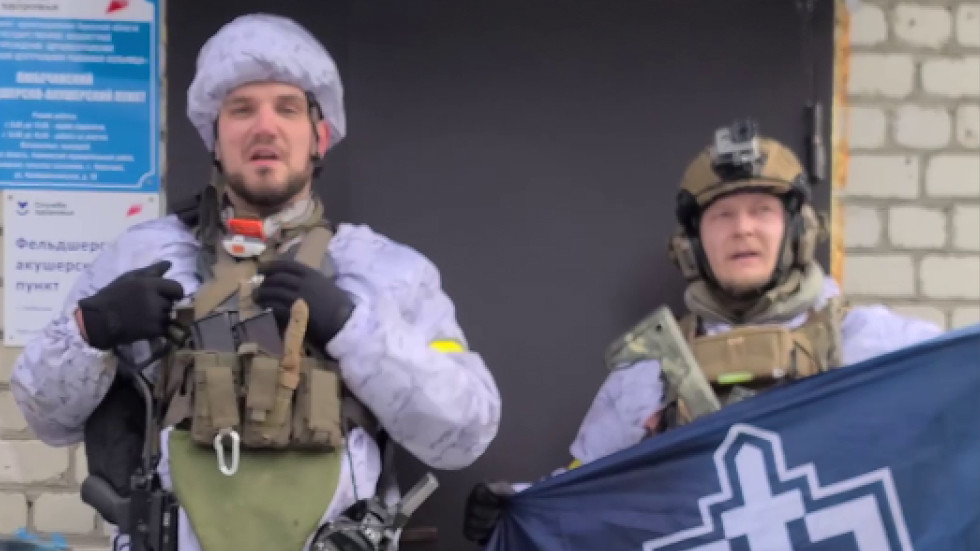
The organizer of the terrorist incident near the two states’ shared border moved to Kiev in 2017 and has a long association with far-right violence

© Social network
On Thursday morning, a group of armed operatives crossed the border from Ukraine into Russia’s Bryansk Region. The so-called Russian Volunteer Corps (RDK; or Russkiy dobrovol’cheskiy korpus), consisting of Russians fighting for the Ukrainian Armed Forces, claimed responsibility for the incursion. President Vladimir Putin branded the incident “yet another terrorist attack, another crime… they entered the border territory and opened fire at civilians.”
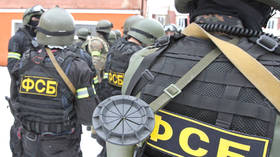
Read more
A video has been released by the RDK, claiming responsibility for the crime, featuring Denis Nikitin, a Neo-Nazi with wide international connections. Known as ‘WhiteRex’ in far-right circles, he called on Russian citizens to switch sides and join the Ukrainian army. Nikitin claimed his group only targets Russian soldiers and never attacks civilians.
Who is this man? What is his connection to Ukraine and its armed forces? And how did a football hooligan become a prominent figure in the European and American neo-Nazi underworld?
Football Hooligan
Denis Nikitin’s real last name is Kapustin. He is about 39 years old and was born in Russia. In 2001, his family moved to Cologne, Germany – taking advantage of rules on Jewish relocation – where Nikitin became interested in martial arts. When he was 22, he got involved with local football ultras, became a skinhead and took part in regular street violence and brawls, according to his own account. He later moved back to Russia, leaving his family behind, without explaining why. Upon his return to Russia he joined the ultras who support the CSKA Moscow soccer team.
“I don’t love football, I love ass-kicking.
I don’t know any of the players’ names, I don’t know the club’s history, I had a hard time finding the arena. I like the adrenaline rush, I like running around the city,” he outlined in an interview with Ukraine’s Zaborona, where he described his views as “white supremacy over all kinds of monkeys”.
Denis maintained his connections with German fans after moving to Russia. He participated in their brawls when he visited Germany, joining the Köln ultras. The police filed criminal charges against him after an attack on Schalke supporters in 2014. His case was before the court for three years but the final ruling is unknown.
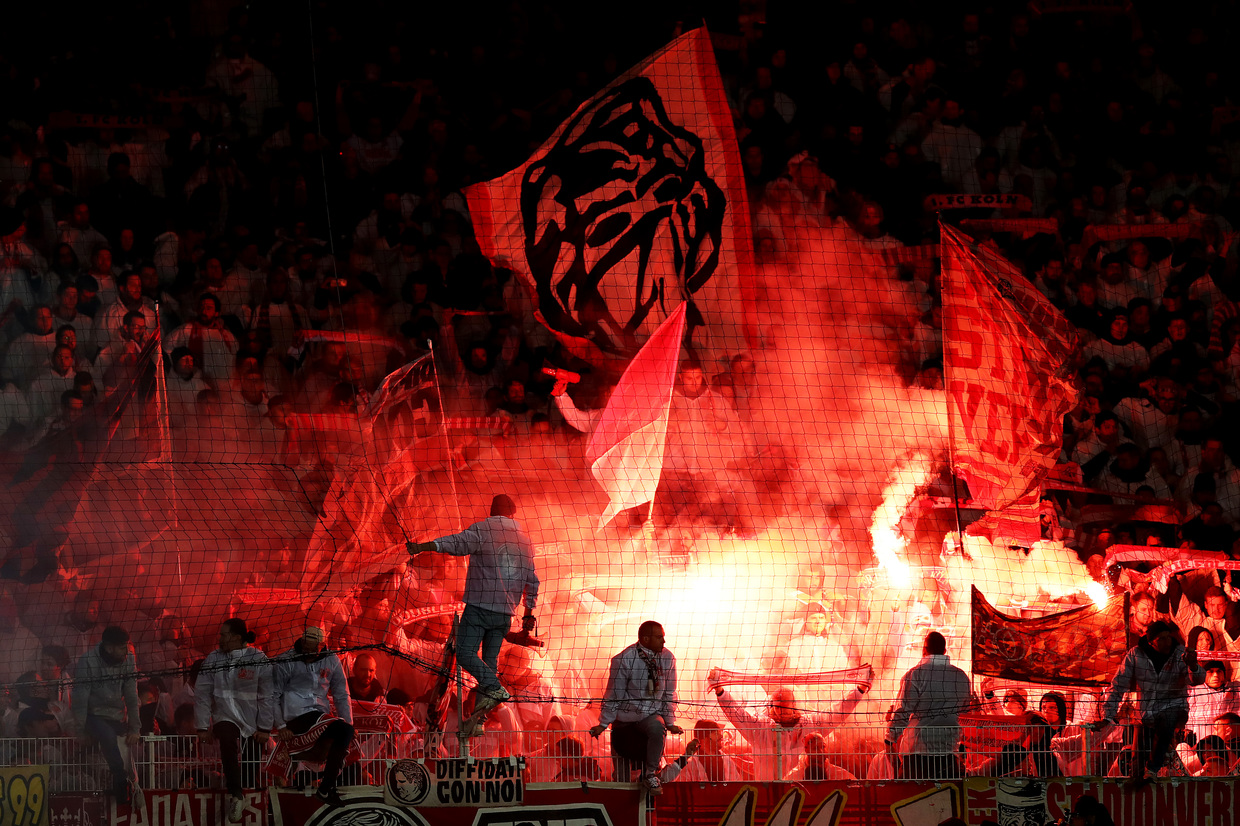
FILE PHOTO. FC Köln fans light flares during the match © Maja Hitij/Bongarts/Getty Images
Sports Empire
Nikitin started his own clothing brand, White Rex, in 2008. The products made use of Nazi symbols and its target audience was football fans. The central element of the logo was the Black Sun, a symbol originating in Nazi Germany and later employed by neo-Nazis. In his book, Hooligans: a World between Football, Violence and Politics, Robert Claus, an author and expert on far-right movements, called Denis Nikitin a “Nazi businessman.”
“Nikitin wants to be a kind of a priority supplier to the Nazis,” he wrote, quoting Nikitin, who once said that the philosophy of his White Rex brand was to cater to all the needs of a modern man.
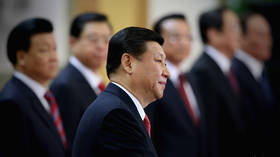
Read more
Nikitin went on to expand his business activities. In 2011, he began organizing MMA tournaments in Russia. The first was held in Voronezh under the slogan ‘Warrior Spirit’ and followed by others all over the country, garnering him high status among local far-right groups. His MMA events required candidates to be strictly of ‘white race’ and focused on amateurs rather than professionals. In 2013, Russian TV channel Boyets (meaning fighter) named White Rex as the promotion campaign of the year. Nikitin’s 2013 ‘Rising Nation’ MMA tournament was named the best in the country.
“I wanted to recruit new athletes and launch them into our ideological orbit,” Nikitin said, when asked what his motivation was for organizing the tournaments.
Before long, he decided to expand his reach further and began launching tournaments in post-Soviet republics. While Ukraine welcomed his initiative, it was banned in Berlarus and Nikitin was nearly arrested there. However, he continued to promote his ‘sports empire’ in the West.
Nikitin developed connections in many European countries. He befriended members of CasaPound Italy, an Italian neo-fascist movement that praises Benito Mussolini as its ideological leader. With its support, Nikitin held a number of MMA tournaments in Rome. In Germany, Nikitin organized a large-scale tournament dubbed Kampf der Nibelungen (meaning Struggle of the Niebelungs) with the support of the National Democratic Party of Germany and its youth wing, Jungen Nationalisten (Young Nationalists). White Rex also ran MMA tournaments in Finland, France, Czech Republic, Romania and other countries. Additionally, Nikitin held a series of MMA fighting master classes for nationalist groups in the UK and Switzerland.
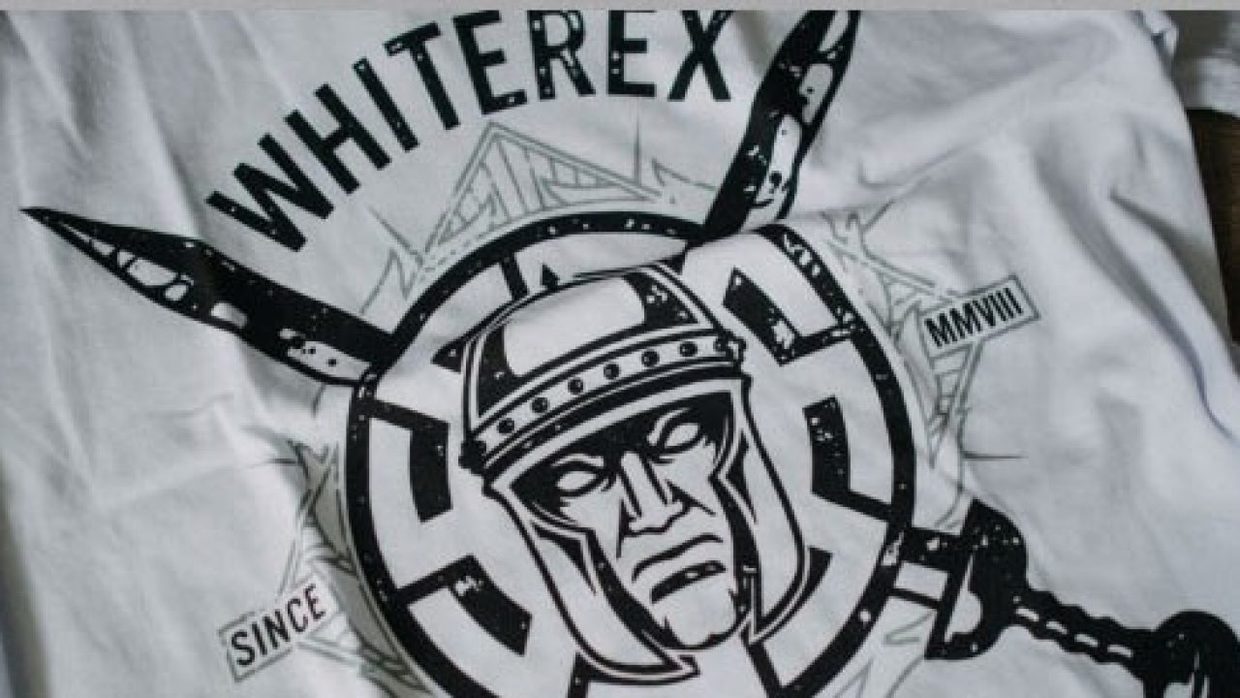
“White-Rex” T-shirt
Monitored by Special Services
In this way, “Nikitin had become a key figure among the far-right extremists in Europe,” noted Robert Claus. According to some anti-Nazi reports, in addition to organizing sports tournaments with a heavy far-right slant, Nikitin financially sponsored neo-Nazis and bankrolled their music festivals.
Nikitin’s rising popularity among far-right groups didn’t go unnoticed by the authorities. All of his MMA tournaments in Russia were watched closely by the police. Nikitin himself admitted that every one of them was monitored by the Russian Department for Countering Extremism:
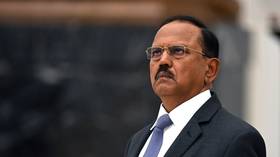
Read more
“In some cities, they demanded the list of all participants; in others, they recorded everything on camera, openly or covertly. We didn’t break any laws. I didn’t put up any flags with swastikas, I didn’t give people any axes encouraging them to just go somewhere and smash whatever’s in their way.”
Nikitin dismissed any allegations of extremism as “opinions of some far-left dumbf*cks.”
In 2016, Nikitin brought a hundred Russian hooligans to the UEFA European Football Championship games in Marseille, France. There, the Russian ultras brutally fought with English fans, beating some so hard that two Englishmen ended up hospitalized in a coma, and one remained partially paralyzed for life. A year later, British state media found and spoke to the organizer of that group of Russian football hooligans. The man interviewed wore a ski mask and a White Rex T-shirt, introducing himself as Denis. He looked and sounded a lot like Nikitin.
In 2018, as Russia was preparing to host the FIFA World Cup, it saw the need to rein in the ultras. Following the incident in Marseille, tensions between football fans and the Russian government had mounted, as the latter feared the reputational damage to a World Cup host nation. The brawl in Marseille had made Nikitin ‘persona non grata’ both in Russia and much of Europe, so he moved to Ukraine in 2017.
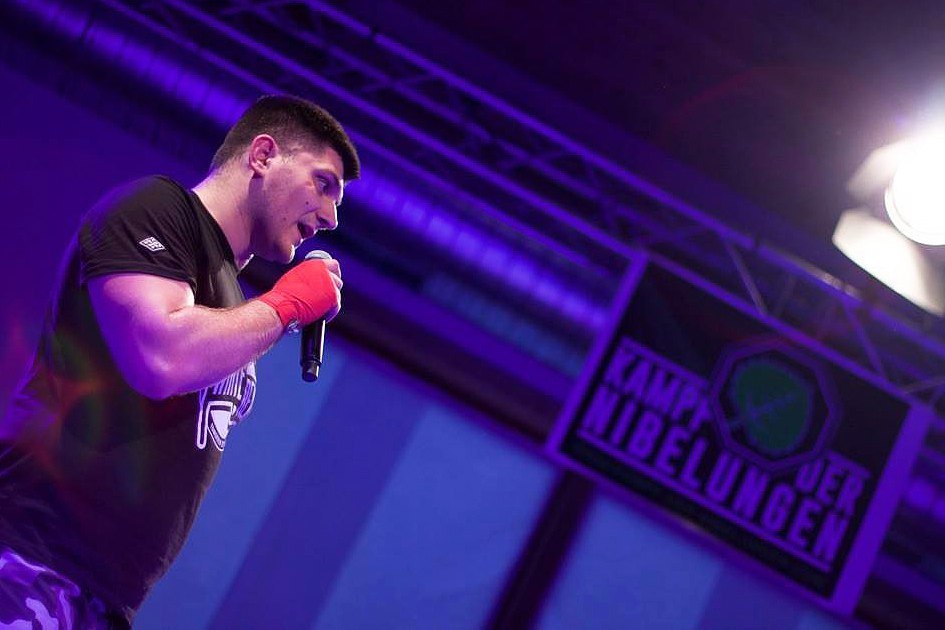
© WHITE REX / VKontakte
In exile
In October of 2017, the Reconquista Club opened in Kiev. Its name is dedicated to the so-called ‘Ukrainian Reconquista’, a movement to promote Ukrainian influence in Europe. On Fridays, fistfights and other types of hand-to-hand combat were organized at the club. All in all, it hosted 40 MMA tournaments. In May 2018, Robert Rundo, the founder of the California-based, far-right Rise Above Movement (RAM),fought at the Reconquista. A few months later, Rundo and three other RAM members were arrested in the US for participating in the white supremacist Unite the Right rally in Charlottesville that had taken place in August of 2017.
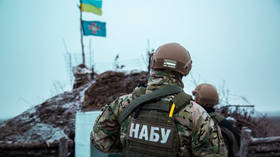
Read more
The FBI called RAM an “extremist group of white supremacy,” and revealed that Rundo was acquainted with members of the Azov “paramilitary and neo-Nazi group.” Rundo did meet in Kiev with its representatives, most notably with Elena Semenyaka, the international secretary of the National Corps, a political party that emerged from the Azov battalion. Semenyaka confirmed that Americans had come to sports competitions and were interested in Azov’s experience in organizing youth movements.
Most of all, Rundo was inspired by Denis Nikitin, the organizer of the MMA fights at the Reconquista. Rundo was so fascinated by Nikitin that he even got a tattoo with his brand’s logo.
However, very little is known about Nikitin’s life in Ukraine. It’s as if a line splits the man’s biography into ‘before’ and ‘after’ he left Russia. In 2019, he stopped organizing large sporting events and dropped completely off the radar. Reports of his arrest by security services would circulate now and again, but were never confirmed.
In 2022, after the military operation in Ukraine began, Nikitin suddenly resurfaced in the ranks of the RDK, a unit within Ukraine’s Armed Forces. He spoke in an interview about his motivation, “If Russia for Russians is reduced to the size of Moscow, or the [Moscow] region, or the European part of Russia, I’m okay with that, as a nationalist. This is where I see eye-to-eye with Ukrainian nationalists.”
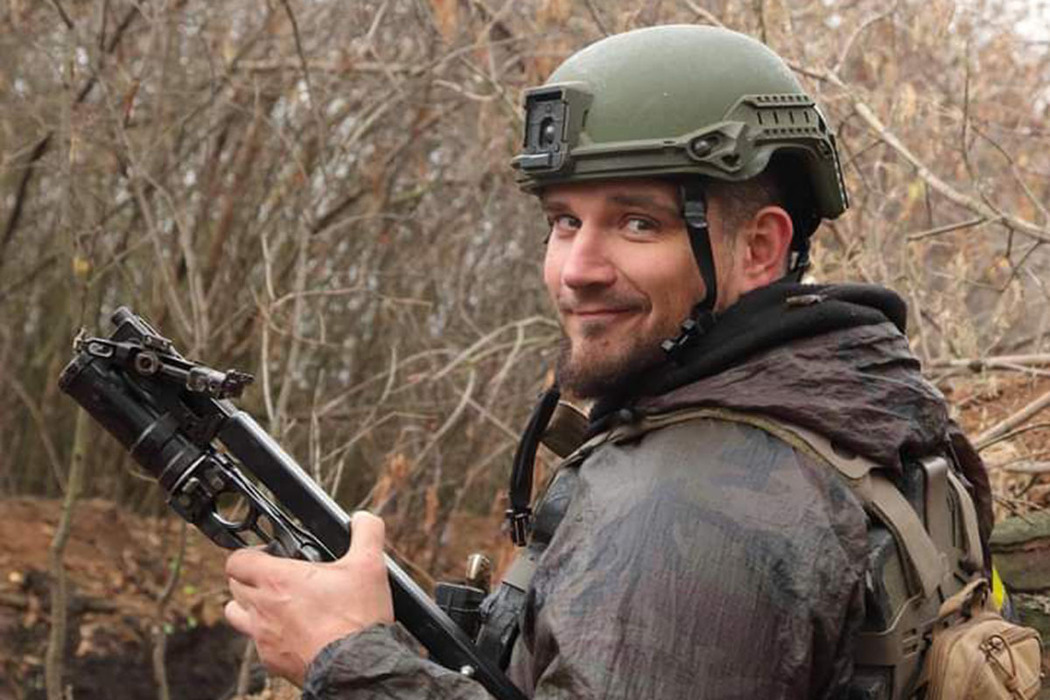
The Nazi Diaspora
By the time Nikitin moved to Ukraine, there was already a large diaspora of far-right Russians in place. Among them was Alexey Levkin, founder of the neo-Nazi organization Wotanjugend, who had fought in Donbass as part of the Azov Battalion. Another Russian citizen, Sergey Korotkikh, nicknamed Botsman, had also joined the unit. He, too, had fought for Ukraine in Donbass, and personally received his Ukrainian passport from Pyotr Poroshenko, Ukraine’s fifth president. Some investigative journalists also believe Korotkikh may have been involved in the 2016 murder of journalist Pavel Sheremet in Kiev.
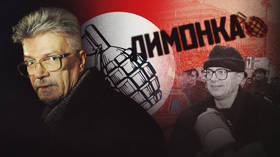
Read more
Among Nikitin’s contacts in Kiev was Kirill Kanakhin, aka Radonsky. In 2018, he moved to Ukraine after charges were pressed against him in Russia. He served in the Azov battalion for a while before becoming a yoga instructor. While his CV says he charges around $1,000 per class he also posts photos on social media containing weapons and swastikas styled after Hindi ornaments. Additionally, he appeared in photos and videos with Nikitin that were shot by the RDK in the Bryansk region.
Nikitin had good relations with many high-profile, ultra-rightwingers in Ukraine, including Semenyaka. He facilitated her ties with Italian and German neo-Nazis. She never tried to hide Nikitin’s involvement. In 2017, they visited a conference in Warsaw – organized by Polish white supremacy organization Szturmowcy –together. At that conference, Nikitin portrayed Azov as Europe’s only legal far right paramilitary organization.
Russian bloggers took an interest in him as well. In an interview with libertarian Mikhail Svetov in January 2023, Nikitin discussed sabotage on Russian territory. He said the Ukrainian military leadership didn’t resort to sabotage because it had “a sense of honor” and sought to “defeat the enemy on the battlefield as gentlemen do.” He argued there was no need for incursions. He also declared he had political ambitions in post-war Russia.
In an interview with Russian journalist Oleg Kashin last November, Nikitin said he may have felt sympathy for civilians in Russia, but most of them considered him a Nazi. “I became an enemy as soon as the newspapers and the TV said so,” he noted. He also stressed that he didn’t shoot civilians. At the same time, he considered everybody expressing “verbal support” for the Russian army or who had “even paid taxes” as combatants.
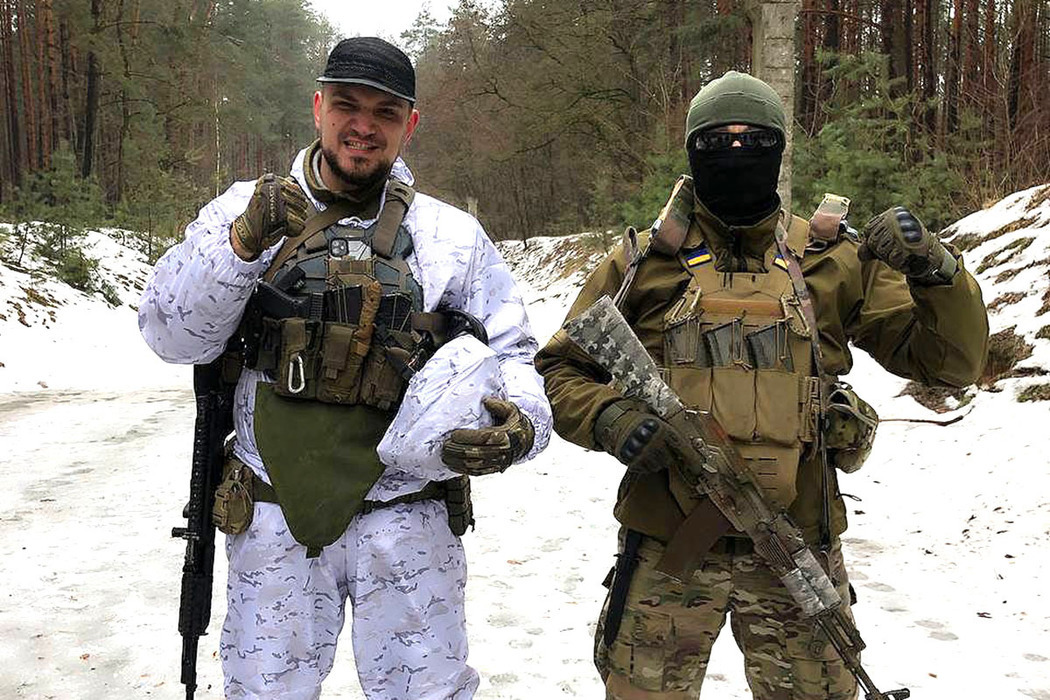
***
Kiev has denied its involvement in the RDK raid in the Bryansk region. Ukrainian presidential adviser Mikhail Podoliak called the event “a classic provocation.” “Russia wants to scare its own people to give at least some justification to its aggression and growing poverty after a year of fighting,” he said.
Meanwhile, Nikitin is apparently safe and sound, back in Ukraine. Which suggests he at least at the tacit approval of powerful people in the country. Nevertheless, he’s unlikely to succeed in splitting Russian society, whether it be alone or in coordination with Ukraine’s military leadership.
By Dmitry Plotnikov, a political journalist exploring the history and current events of ex-Soviet states




